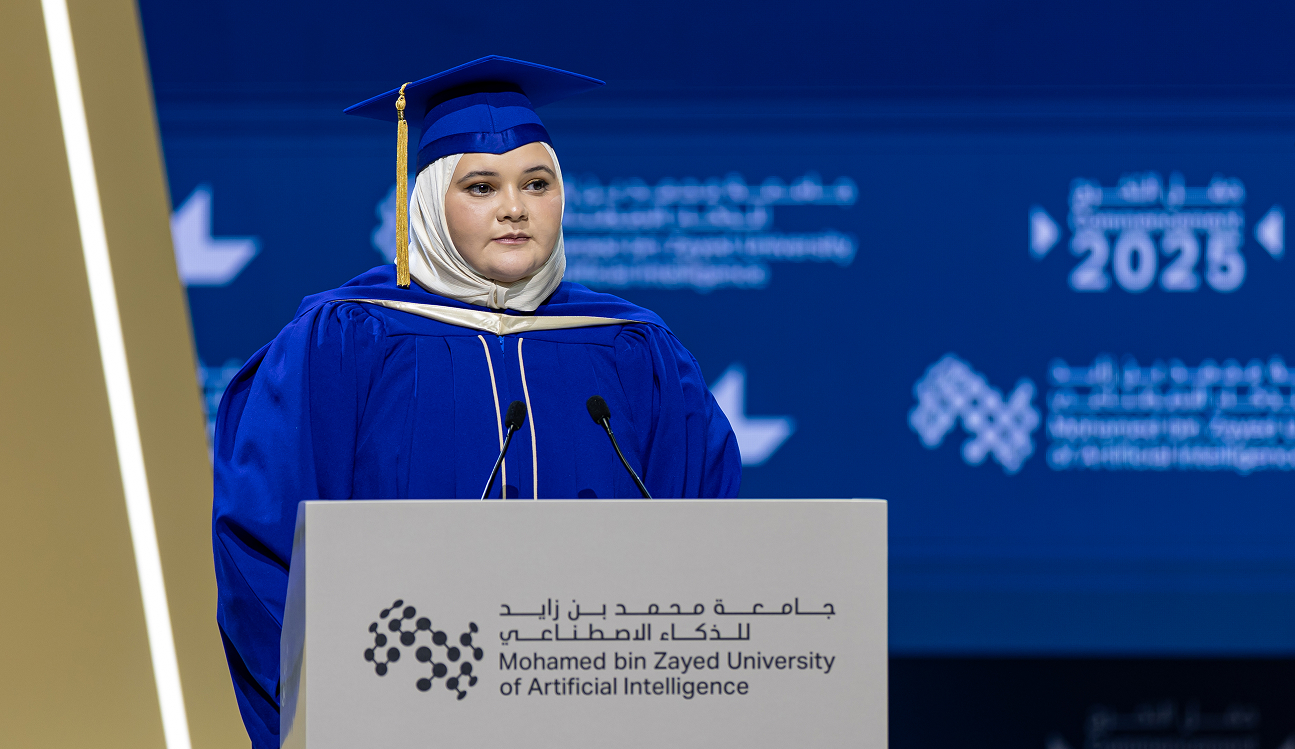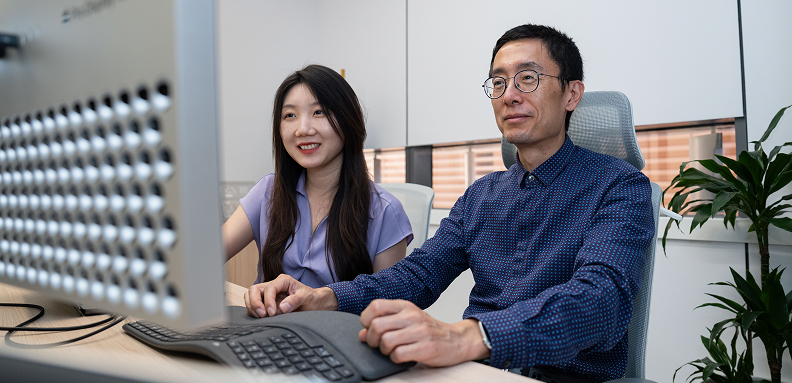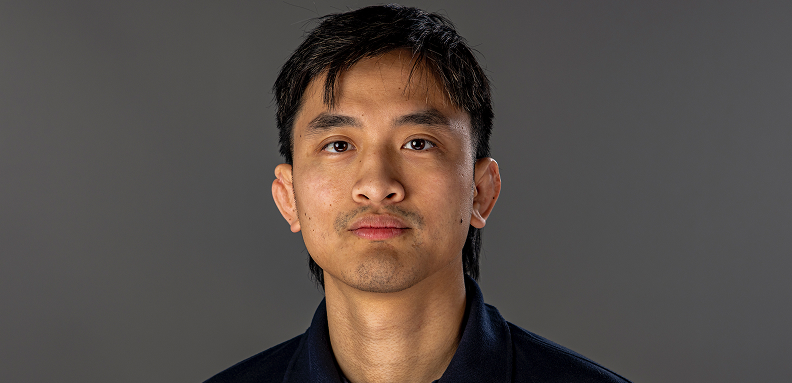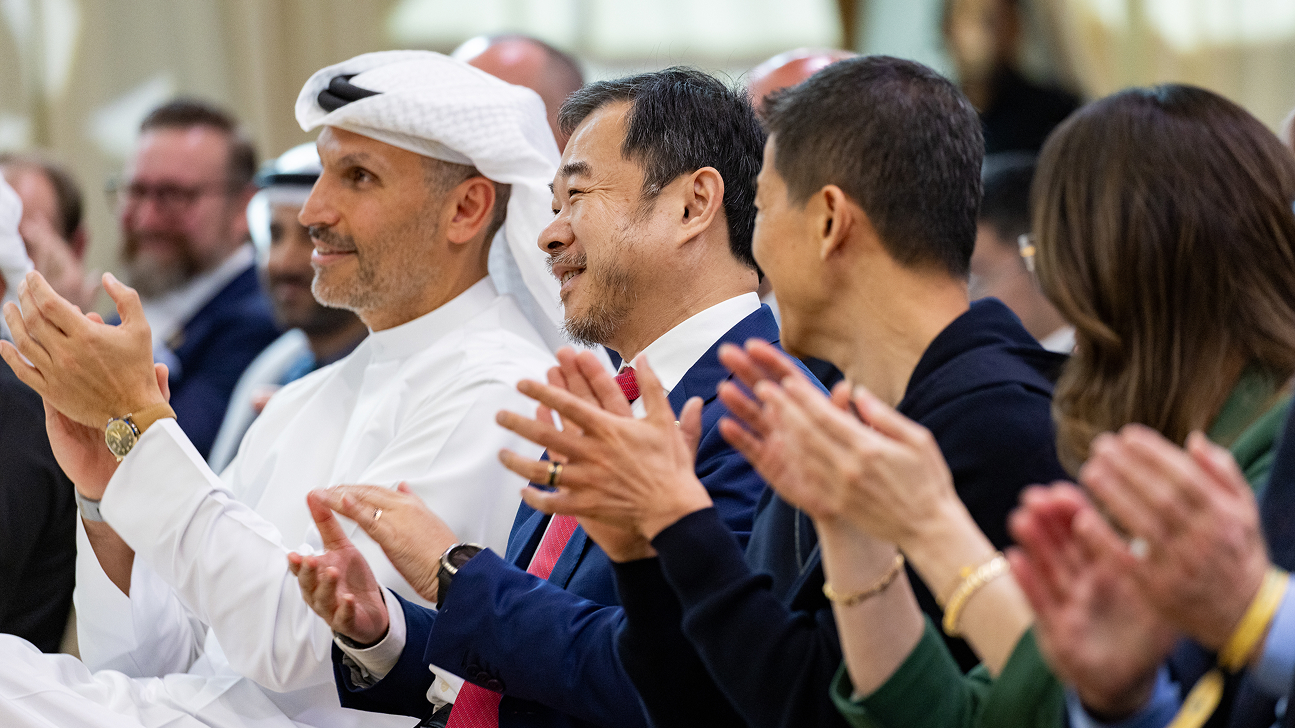Improving diagnosis of neurodegenerative diseases
Monday, June 16, 2025

“I’ve always been drawn to problems that are under-explored but have major human consequences,” says Salma Hassan as she discusses her master’s thesis on multimodal graph learning for early differential diagnosis and prognosis in dementia.
“Neurodegenerative diseases such as dementia and Alzheimer’s can be devastating, but the early detection and diagnosis is often missed. The numbers are quite staggering; it is estimated that every three seconds, someone is diagnosed with dementia – though 75% of cases are never even diagnosed, let alone treated. It is a significant global issue, and I saw an opportunity for AI to bridge this gap and improve the situation.”
Graduating with an M.Sc. in Machine Learning from MBZUAI, Hassan received the honor of being named the Class of 2025 valedictorian for her academic excellence and research contributions to dementia diagnosis. Her pioneering research seeks to improve diagnostic accuracy and identify early biomarkers by leveraging relationships across data types, including brain imaging, genetics, and clinical records – modelling how different biological and structural features interact.
“My focus was on two different main areas,” she adds. “First is the differential diagnosis, which doesn’t just identify whether a patient has dementia or not: it looks at identifying what category or subtype they belong to – the specific dementia-related issue. It is very hard to differentiate between them, but it is important, and machine learning can help with this.
“The second aspect was prognosis – exploring patient outcomes. I looked at patients in the preclinical stage – so those with no symptoms at all – and then tried to detect when exactly they are expected to transition to full onset dementia, as well as predicting their cognitive decline. This helps us develop a comprehensive dementia management tool that can help with the allocation of limited medical resources, especially in low- and middle-income countries where most cases occur.”
Passion for positive impact
Hassan joined MBZUAI in 2023, having graduated a semester early from the American University in Sharjah with a bachelor’s in computer engineering. It was there that the Egyptian native developed an interest in, and aptitude for, AI. After taking elective courses in machine learning and deep learning, she developed brain computer interface virtual reality system (BCI VR) for the rehabilitation of patients with upper limb impairments, for her graduating project.
Graduating early did not mean putting down tools, however. Alongside working as a data analyst, she set about plotting her next steps. And there was only one place she wanted to be.
“It was clear to me that I wanted to continue at the intersection of AI and healthcare, and the best place for me to do that was at MBZUAI,” she says.
“I reached out to Dr. Mohammed Yaqub straight away – before courses had even started – because I had read a lot about him, his research, and the BioMedical Image Analysis (BioMedIA) lab that he’d set up at the University, which is dedicated to solving healthcare challenges using AI.”
With Yaqub as her primary advisor, and a determination to focus on neuroscience, Hassan started to home in on her specific research topic. “To me, neuroscience is an interesting, intricate and complex puzzle to work out. It’s about understanding how brains work and being able to do research that can have real impact on real patients,” she says.
“When I started at MBZUAI, Dr. Yaqub gave us the freedom to look at whatever we wanted to work on and just experiment with whatever data was available. He asked us to look at both the technical and the clinical impact, and then see what kind of technologies, tools, and models we could leverage to help us solve that issue.
“He gave us complete freedom to explore, and time to experiment, so I started with neuroscience and then I focused in on dementia and Alzheimer’s disease, which became the topic of my thesis.”
Enriching, engaging and transformative
Hassan is among 104 graduates in the Class of 2025, which is the largest and most diverse to date; celebrating its first cohort of women Ph.D. graduates (four) and 30% women making up the graduating class. What sets them apart is their determination and innovation – conducting groundbreaking research in the midst of rapid global technological shifts and regional growth in AI.
Looking back on her MBZUAI experience, Hassan admits that the work was intense, but that it “brought out a better version of myself”.
“The whole experience was enriching, engaging and transformative,” she says. “There were some very tough deadlines and late nights in the lab, but I established some strong friendships along the way, and it was such a positive environment. It made me more attentive, more focused, and challenged me to do more.”
Hassan also says she and her fellow students were encouraged to submit papers to conferences and journals. Rising to this challenge, she managed to publish an article in the Natural Scientific Reports journal, as well as publishing papers at the IEEE International Conference on Image Processing (ICIP) and the Medical Image Computing and Computer Assisted Intervention (MICCAI) conference.
“Publishing those papers was a great achievement,” she adds. “MICCAI is a top conference when it comes to medical work and AI, and I have fond memories of working on those projects.”
Just getting started
This project is just the beginning for Hassan, who sees significant potential to expand the work further.
“I started exploring the genetic aspects of neurodegenerative diseases because if you want to focus on early detection, you have to consider a patient’s genetic data,” she explains. “Genetics often hold the earliest signals of disease progression, even before symptoms appear, so integrating that layer is essential for building truly predictive models.”
Hassan plans to continue refining her research and developing practical tools that can support real-world diagnosis and prognosis.
“New biomarkers are being discovered all the time – across genetics, proteomics, imaging, speech and more,” she says. “My plan is to stay up to date and develop scalable models that can adapt as new data types and biological insights emerge. The goal is to build tools that are robust, flexible, and clinically useful.”
Longer term, Hassan plans to continue her research, and has already been accepted to pursue a Ph.D. at MBZUAI. Before she begins, she is focused on gaining more research experience to further strengthen her expertise. “I feel like I’m just getting started and there is still a lot more to do. I’m passionate about continuing this work in the years ahead.”
- ML ,
- Graduation Ceremony ,
- Heath Care ,
- News ,
- Students' Achievements ,
- prognosis ,
- diagnosis ,
- commencement ,
- valedictorian ,
- health ,
- alumni ,
- graduation ,
- machine learning ,
- 2025 Cohort ,
- Neurodegenerative ,
Related
Not just another deck: how MBZUAI’s okkslides is redefining executive communication
The MBZUAI startup is turning messy research and organizational context into decision-ready narratives with a human-in-the-loop AI.....
Read MoreAlumni Spotlight: driving AI transformation at a financial giant
MBZUAI alumnus Steven Hoang explains how he is using his master’s in machine learning to help shape.....
- student ,
- Alumni Spotlight ,
- finance ,
- alumni ,
- machine learning ,
MBZUAI marks five years of pioneering AI excellence with anniversary ceremony and weeklong celebrations
The celebrations were held under the theme “Pioneering Tomorrow: AI, Science and Humanity,” and featured events, lectures,.....
- celebration ,
- five year anniversary ,
- ceremony ,
- board of trustees ,
- faculty ,
- event ,
- campus ,
- students ,


